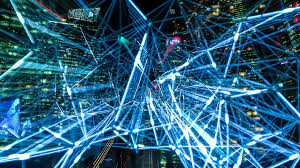Source: edition.cnn.com
Artificial intelligence is the future. If “Westworld” or “Black Mirror” are to be believed, there will soon come a day when the computers rule us all.But for now, an AI’s power ends at the US Patent Office.The USPTO has denied a pair of patents filed on behalf of DABUS, an artificial intelligence system, and published a ruling that says US patents can only be granted to “natural persons.”The two patents were for a food container and a flashlight, and were filed by Stephen Thaler, an AI researcher and DABUS’ creator. According to the filing from the USPTO, Thaler calls DABUS a “creativity machine” and wanted the AI to get full credit for the inventions. The filing says Thaler argued that “allowing a machine to be listed as an inventor would incentivize innovation using AI systems.” CNN has reached out to Thaler for comment.
However, according to the USPTO’s ruling, inventions can only be submitted (and depending on how philosophical you want to get, conceived) by a “natural person,” as reflected in the language of patent law and also in previous federal court rulings.Speaking of philosophy, the ruling quotes a Federal Circuit court decision from 1994 that expounds on the nature of invention in a way that’s certain to send your brain down the maze of reflexive self-awareness.”Conception is the touchstone of inventorship, the completion of the mental part of invention. It is the formation in the mind of the inventor, of a definite and permanent idea of the complete and operative invention … [Conception] is a mental act …”Patents that list DABUS as the inventor have also been denied in Europe and the UK for similar reasons related to personhood. The European Patent Office also raised the issue of who, exactly, would enforce the rights granted to an inventor under such a circumstance.Thaler, the mind behind DABUS, is a physicist and founder of Imagination Engines, a company that researches and develops artificial neural networks. DABUS is one such artificial neural network. Imagination Engines describes DABUS as a “true artificial inventor” that is programmed to mimic the neural patterns of human thought that lead to the mysterious, primal spark of invention.
